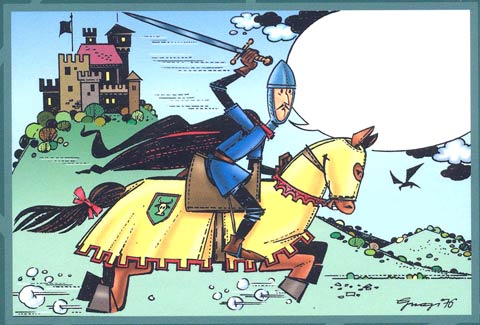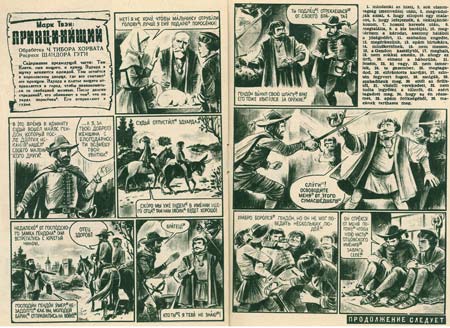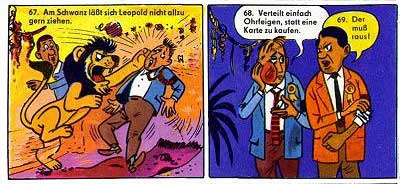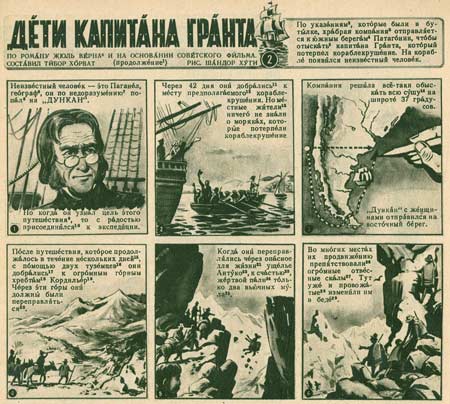Comic by Sándor Gugi.
Sándor Gugi was a Hungarian pioneer of comic book adaptations of classic literature, born in 1917 in Budapest. In 1934, he won a national drawing competition, and a year later he received admission to the College of Fine Arts, where he graduated as a teacher. From 1940 on, he worked as an art teacher. He began illustrating the daily Szabad Nép in 1949.
Comic by Sandor Gugi, 1976.
Gugi's first comics were published in Tanácsok Lapja from 1954 onwards, where he drew the adventures of 'Talál Tamás' in strip format. In 1955, he contacted Tibor Cs. Horváth (who worked at the Educational Department of the Ministry of Culture at that time) to produce comic books similar to the American Classics Illustrated-series. Horváth jumped at the chance and thus were born emblematic pieces of the medium in the pages of Új Világ, Szabadságharcos and Po Sztránye Szovetov.
Mark Twain's 'The Prince and the Pauper'.
Gugi could draw in various styles: with meticulous inks in Wells' 'Invisible man', using ink wash in Verne's 'The Children of Captain Grant' or applying comic images in 'Mahomed in Csömör'. His works were also published in many countries of the socialist block, for example the East German magazine Frösi ('Der Arme Leopold', 1977).
'Der Arme Leopold'.
Between 1954 and 1960, Gugi laid down the foundations of comic book drawing and scriptwriting only to cut the whole business. The split was caused by his immense perfectionism, as he quite often was ready to spend weeks doing preparations before drawing one single panel. (He checked every detail regarding furniture, clothing, architecture, etc.)
Jules Verne's 'The Children of Captain Grant'.
In 1970, Gugi returned to the world of comics with two Rejtö short story adaptations, but soon became disillusioned with producing quantities and quit again. The artist undeservedly died almost forgotten on 31 December, 1998.
His main works are H.G. Wells' 'A láthatatlan ember' ('The Invisible man', 1957), Ribakov's 'Atör' ('The Dagger', 1957), his own story 'Mahomed Csömörön' (1959), Antal Szerb's 'Szerelem a palackban' ('Love in a bottle, 1964) and Jenö Rejtö's 'Pipacs' and 'Minden jó, ha vége van' (1970).
Sándor Gugi.
'Der Arme Leopold' online
(in German)







